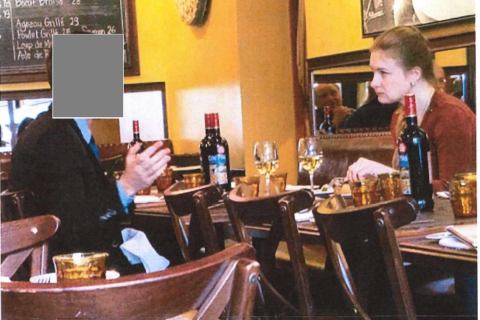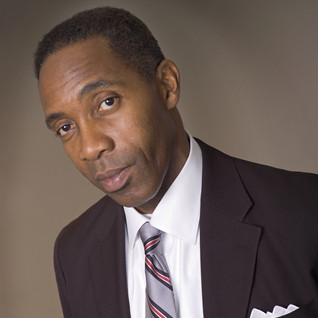In March 2016, WTOP national security correspondent J.J. Green began investigating the suspicious deaths of Russian diplomats and others around the world linked, in some way, to the Kremlin. Some of them died in the U.S. — in New York and D.C. The deaths of some were deemed “natural.” Others were obviously murdered. The investigation, which also examined failed assassination attempts, revealed a persistent pattern and a recurrent scheme, involving money, power and revenge. In the WTOP series “Assassins Inc.: The Kremlin’s secret squad of killers,” dozens of people, including victims, their family members, diplomats, journalists, U.S. intelligence, U.S. law enforcement officials and sources, members of Congress, and experts were interviewed to gain a better understanding of how this deadly ring of killers operates.
Part one: The Adelphi Affair — Unsolved
WASHINGTON — The night of March 1, 2007 was cold and rainy. Paul Joyal was returning to his home in nearby Adelphi, Maryland, after an evening at Zola, a swanky restaurant next to the International Spy Museum in downtown D.C.
“I’d had a few drinks at the bar with Maj Gen. Oleg Kalugin, former chief of KGB Counter Intelligence,” he told WTOP in an interview earlier this month. He arrived home about 7:30 p.m. after making the nine-mile journey. As he stepped out of his car, he was ambushed.
“There were two men waiting for me in the bushes,” Joyal recalled. “I struggled with one of them and took him to the ground.”
The subdued attacker, sensing he was losing the fight, yelled something to his accomplice — something the 53-year-old Joyal would never forget: “Shoot him.”
One shot from a 9mm pistol was fired into his abdomen, piercing both his colon and bladder, Joyal said.
Then something remarkable happened.
“He went to shoot me in the head and the gun jammed,” Joyal recalled. The shooter, he said, “cleared the chamber and tried it again; and the gun jammed again.”
Joyal’s dog, inside the house, began to bark.
His wife, realizing she’d heard a gunshot, ran to turn on the outside lights.
Moments after trying to kill him, the panicked assailants ran off, escaping through a cemetery, located behind Joyal’s home.
But not before he got a look at the man he wrestled with. His appearance would be seared into Joyal’s memory, he said, and would later activate the former federal law enforcement officer’s investigative analysis skills.
“He was a light-skinned, mixed-race individual,” Joyal recalled. “He had facial hair and looked like he’d been in the sun. And considering it was March, in the dead of winter, I concluded, he was not from the area.”
When questioned about where the person might be from, he suggested, “Maybe the Miami area, where the climate is better during that time of the year.”
That determination would prove critical as he sorted through who his attacker could be.
As he lay critically wounded on the pavement outside his house, he urgently instructed his wife to make a vital phone call — but it was not to 911.
His wife, a nurse, had already done that. What Joyal wanted to do was warn his friend.
“I made sure she called and alerted Oleg Kalugin,” he said.
Kalugin, the person with whom Joyal met for drinks at the Spy Museum, had defected to the U.S. They had three key things in common: They were former business partners, critics of Russian President Vladimir Putin and, perhaps most importantly, friends with Alexander Litvinenko.
It had been four months since Litvinenko, a Russian defector and former FSB agent, had died of a brutal poisoning with radioactive polonium. His death would later be tied to a contract killing, carried out by two Russian businessmen, both former KGB officers.
Joyal, seriously wounded, immediately concluded his attackers had been dispatched by someone linked to the Kremlin.
His direct concern at the time, though, was surviving.
For more than a month, Joyal lay in a medically induced coma, breathing through a tube.
When he woke up, he was informed the police had no suspects. Initially, authorities looked at the attack as a robbery gone bad, but Joyal refused to accepted that theory.
“What are people doing in the dark in the rain, waiting for someone? That’s not the profile of a robber. What are they trying to get, my computer? It was in the car, they could’ve taken it. My wallet, they could’ve asked for it,” Joyal said.
His car, a Chrysler 300, among the most sought after by robbers in that era, had not been taken. His neighbor’s car, a Lexus, a high-end, luxury vehicle at the time, had not been touched. Nothing had been taken from him, except his sense of security for himself and his family.
Joyal said he is certain the shooting happened because he’d crossed Putin.
It happened four days after Joyal had appeared on NBC’s “Dateline” TV program, discussing the brutal death of his friend Litvinenko, a harsh critic of Putin.
On the program, Joyal, himself a longtime Putin critic, accused the former KGB spy of ordering Litvinenko’s murder, saying that “a message has been communicated to anyone who wants to speak out against the Kremlin: ‘If you do, no matter who you are, where you are, we will find you and we will silence you — in the most horrible way possible.'”
Curiously, Joyal’s shooting came about a week after another guest on that same program turned up dead in London. Daniel McGrory, a senior London Times reporter, died of a heart attack eight days before the program was broadcast, a death initially deemed unsuspicious. But after the poisoning of former Russian intelligence officer Sergei Skripal, British authorities are taking a second look, both at his death and the death of others.
Yet another person on that same program ended up dead. Seven years later, Boris Berezovsky, a former Russian billionaire and Putin friend, turned enemy, was found hanged in his bathroom at his home in London. He was an even closer friend of Litvinenko.
Eleven years later, Joyal’s case has never been solved.
Read the complete “Assassins Inc.: The Kremlin’s secret squad of killers” series
- Part 2: The Russian assassin’s business model
- Part 3: Russia’s deadly threat to the West
- Assassins Inc.: The analysis








